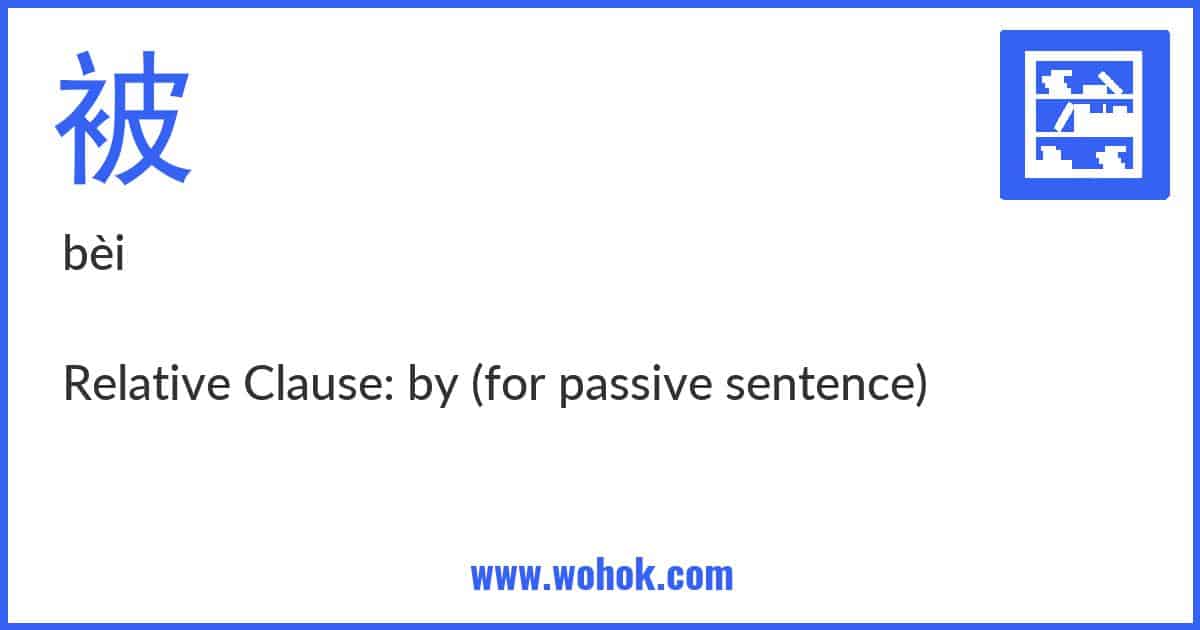The Chinese word 被 is a preposition that is commonly used to indicate the passive voice in a sentence. It is often translated as “by” or “was/were” in English. When used in a sentence, 被 typically comes before the verb and after the subject. For example, “我被狗咬了” means “I was bitten by a dog”. In this sentence, 被 indicates that the subject is the receiver of the action.
Translation
Relative Clause: by (for passive sentence)
Pronunciation
Example Sentences
| Chinese | Pinyin | Engish |
|---|---|---|
| 他被老师批评了 | tā bèi lǎoshī pīpíng le | He was criticized by the teacher |
| 这个问题被大家忽略了 | zhège wèntí bèi dàjiā hūlüè le | This problem was ignored by everyone |
| 我的手机被偷了 | wǒ de shǒujī bèi tōu le | My phone was stolen |
| 这个城市被污染得很严重 | zhège chéngshì bèi wūrǎn de hěn yánzhòng | This city is heavily polluted |
| 他被邀请参加了会议 | tā bèi yāoqǐng cānjiā le huìyì | He was invited to attend the meeting |
| 这个项目被取消了 | zhège xiàngmù bèi qǔxiāo le | This project was cancelled |
| 她被狗咬了 | tā bèi gǒu yǎo le | She was bitten by a dog |
| 这个故事被讲了很多次 | zhège gùshì bèi jiǎng le hěn duō cì | This story has been told many times |
HSK
被 is part of HSK Level 3 in both HSK 2.0 and HSK 3.0.
Learning Card


